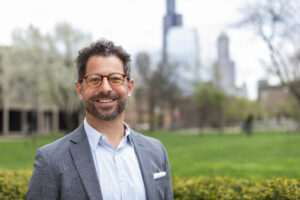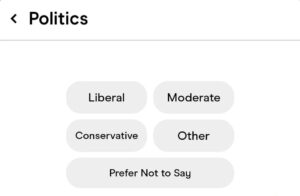Story by Michael Pasternak
Submitted by Visitor on Tue, 03/25/2008 – 02:08.
Lawmakers, many having written off Gov. Rod Blagojevich’s plan to fund a capital construction bill by leasing the Illinois Lottery are now scrambling to come up with an alternative.
One roadblock: the ongoing bickering between the governor and House Speaker Michael Madigan (D- Chicago), said Kent Redfield, professor of political studies at the University of Illinois at Springfield.
“The governor and the speaker are at total loggerheads,” Redfield said. “There is huge pressure for a capital bill. Nobody wants to raise the revenue to pay for it.”
Redfield says a power struggle between the two Democratic political leaders over who runs the Illinois General Assembly has stalled legislation since Blagojevich took office.
No statewide capital bill for roads, schools, bridges and viaducts has passed during Blagojevich’s administration, which began in 2003.
In an attempt to raise $7 billion for the capital bill, the governor proposed the partial leasing of the lottery in his joint State of the State and budget address on Feb. 20, his third attempt in three years to privatize the lottery. In a new twist this year, instead of leasing out the entire lottery, Illinois would maintain a 20 percent financial interest and all regulatory authority.
In its response to the governor’s proposed budget, the Illinois Senate Republican Caucus calls the lottery lease plan “unworkable.” The Caucus questions how the state will replace all lottery net revenue that currently goes to education, an estimated $650 million per year, if the state retains just a 20 percent interest.
State Sen. Matt Murphy (R- Palatine) has proposed the No Federal Dollar Left Behind Act, which would fund the capital bill without the leasing of the lottery or the expansion of gaming.
“I hope this is the year we get something done. We need a capital bill,” said Murphy. “We have infrastructure needs. We need good roads, mass transit and school repairs.”
Murphy’s bill, SB2081, seeks to leverage the sale of the newly released 10th casino license to help fund a state bond sale to generate revenue for the capital bill.
“The 10th license is coming one way or another,” said Murphy, who is against the expansion of gaming past the 10th casino. “I think my bill is something that shouldn’t be that politically difficult.”
The Illinois Gaming Board has begun the process of selling the 10th casino license, which has been dormant since 1997.
Redfield says gaming expansion might be the way the capital bill will ultimately be funded.
“I’m not even sure we’re going to get a capital bill,” said Redfield. “Gambling expansion might be the only game in town. [The lottery] is a lousy revenue source. The lottery is particularly lousy and regressive.”
Former Gov. Jim Edgar, who ran the state for most of the 1990s, says cooperation between the legislative leaders is the only way Illinois will get its capital bill.
“As governor you have to reach a consensus,” said Edgar, who now works with Redfield at the Institute of Political Affairs at the University of Illinois at Springfield. “I’m not crazy about expansion of gaming, but in this case I think it is better than the leasing of the lottery.”
Murphy says he is working with members on both sides of the aisle to make sure Illinois passes a capital bill this year, but the legislature might have another long summer bickering over the budget.
“I think there is far too much power in far too few hands,” said Murphy. “I haven’t seen a softening of the relationship between the governor and Madigan.”
Redfield says the relationship between this governor and this speaker is the key to government in Illinois.
“With a different governor and a different relationship with the speaker, the capital bill would have happened a long time ago,” said Redfield. “Madigan is fine with a capital bill that says he wins.
Categories:
At Play Public
Tags:
gambling gov. blagojevich illinois legislature lottery






Be First to Comment